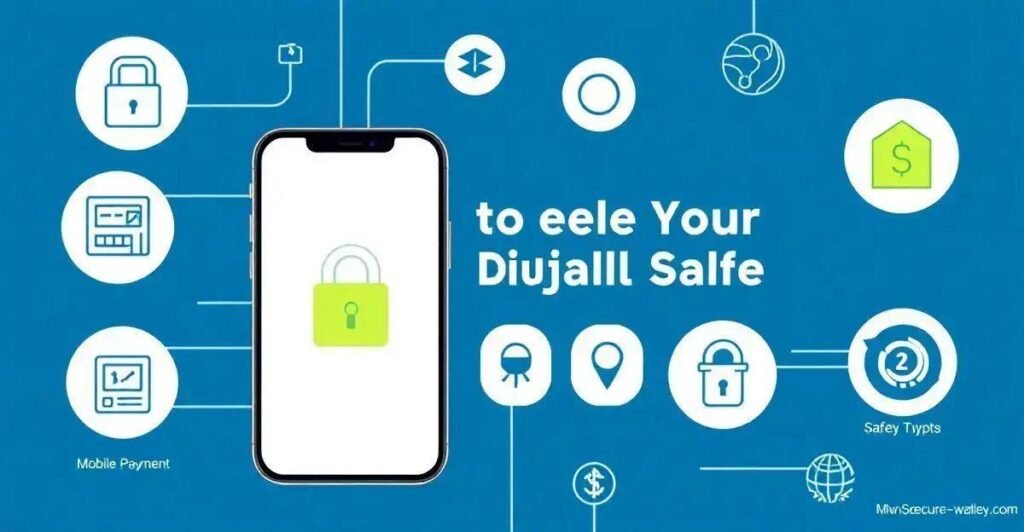Decentralized Identity Verification: A Game Changer in Online Security
In an era where digital security is paramount, decentralized identity verification is reshaping how we manage and protect our personal information online. This revolutionary approach leverages blockchain technology, offering individuals unprecedented control over their data while minimizing reliance on centralized authorities. It’s a step towards enhancing privacy and reducing the risk of data breaches. Ready to dive in? Let’s explore the transformative world of decentralized identity verification.

Veja também: Essential Tax Planning Strategies for 2024
Understanding Decentralized Identity Verification
Decentralized identity verification is a cutting-edge method in which users manage their identities without depending on centralized systems. By using blockchain technology, this system creates secure and tamper-proof identity data, allowing individuals to share their identity only when necessary and keeping the rest private. The result? Enhanced security and a significant reduction in identity theft.
Ingredients for Success: Benefits of Decentralized Identity Systems
The advantages of using decentralized identity systems are plentiful. Firstly, users enjoy enhanced privacy and control over their data, sharing only what is necessary. This reduces unwanted exposure and builds trust by minimizing dependence on large corporations. Additionally, it speeds up the identity verification process, making transactions smoother for both users and service providers alike.
Overcoming Hurdles: Challenges in Decentralized Identity Verification
Despite its benefits, decentralized identity verification faces several challenges. Educating users on protecting their private keys is crucial, as these keys are vital for accessing identities. Interoperability between different systems can also be an issue, causing confusion and limiting use. Furthermore, aligning decentralized identities with current legal frameworks presents regulatory challenges. Despite these hurdles, the potential for a secure and user-friendly identity verification system is vast.
Technologies Behind Decentralized Identity
At the heart of decentralized identity systems are several key technologies. Blockchain serves as a distributed ledger that stores identity information securely. Cryptographic algorithms protect user data, allowing for secure verification without revealing complete identities. Decentralized Identifiers (DIDs) and smart contracts further enhance these systems by providing unique identifiers and automating transactions, respectively.
Real-World Applications of Decentralized IDs
The practical applications of decentralized IDs are numerous and diverse. In healthcare, they allow patients to manage their medical records safely. In finance, they simplify and secure Know Your Customer (KYC) processes. Education benefits from greater credential verification without centralized databases. Additionally, e-commerce and government services are leveraging this technology to enhance security and efficiency.
The Future of Identity Verification
The future of identity verification looks promising as decentralized systems continue to gain popularity. As technology advances, we can expect greater integration with artificial intelligence and machine learning, further enhancing security and user experience. The regulatory landscape is also evolving, with clearer guidelines anticipated. This shift towards decentralized identity systems promises a more secure and user-centric approach to digital identity management.
Frequently Asked Questions about Decentralized Identity Verification
What is decentralized identity verification?
Decentralized identity verification empowers individuals to control their personal data without relying on centralized authorities, utilizing blockchain technology for security.
What are the benefits of decentralized identity systems?
Key benefits include improved privacy, control over personal data, reduced fraud, and streamlined verification processes.
What challenges do decentralized identity systems face?
Challenges include the need for user education, system interoperability, regulatory compliance, and securing private keys.
What technologies are behind decentralized identity?
Core technologies include blockchain, cryptography, decentralized identifiers (DIDs), smart contracts, and Self-Sovereign Identity (SSI) frameworks.
How are decentralized IDs applied in the real world?
Applications span healthcare record management, financial KYC, academic credential verification, e-commerce, and public service access.
What does the future hold for identity verification?
The future may see enhanced user control, better integration with smart technologies, clearer regulations, and increased adoption of decentralized systems.
In conclusion, decentralized identity verification is a groundbreaking advancement in the realm of digital security. Its ability to give users control over their personal data while ensuring privacy and reducing fraud makes it an exciting development to watch. The potential to revolutionize multiple sectors is substantial, and as the technology matures, we’ll likely see even more innovative applications. Ready to explore this new frontier of identity management? Dive in and discover the future of secure digital identities.
blockchain technology
cryptography
privacy
data security
identity theft prevention
user control
decentralized identifiers
smart contracts
self-sovereign identity
healthcare applications
finance
education
e-commerce
government services
future of identity verification






